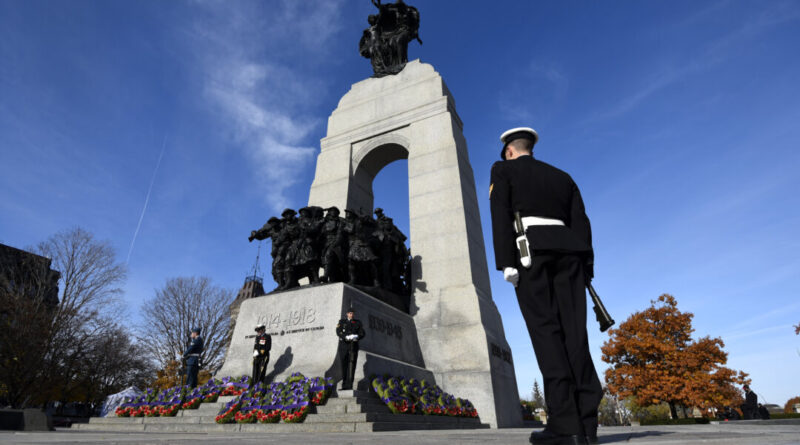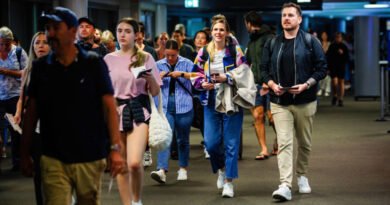‘Controversy Surrounding Military Reflection Ban Sparks Debate on Remembrance Day’
With conflicting claims being made, it may be unclear what exactly has changed with the Chaplain General’s new directive issued last year. Understanding the words used by politicians and the military chaplaincy command is crucial to discern what is now forbidden and allowed by the military.
Meanwhile, the Royal Canadian Legion, the organizer of the National Remembrance Day ceremony, has also issued a statement on the matter.
The Change
The new directive by Chaplain General Brig.-Gen. Guy Bélisle, issued on Oct. 11, 2023, replaced the previous directive titled “Public Prayer at Military Ceremonies,” which had been in effect since 2013.
In the prior directive, chaplains were instructed to invite non-praying attendees to engage in silent personal reflection while others prayed.
The new directive acknowledges that prayer may not resonate with everyone. Instead, it advises chaplains to conduct inclusive reflections during mandatory military ceremonies like Remembrance Day events.
Chaplains are instructed to make sure these reflections are inclusive, allowing people of different beliefs (religious, spiritual, agnostic, atheist) to participate without reservations.
Chaplain General Bélisle explained that the new directive was necessitated by a 2015 Supreme Court ruling mandating state neutrality, a legal obligation for the Royal Canadian Chaplain Service to adhere to.
The directive also outlines disciplinary measures for those who fail to comply.
2023 Reactions and Exemption
He also announced the formation of a committee to review the new directive, which is still in progress with no final conclusions yet.
DND’s Derek Abma reiterated that all chaplains must adhere to the new directive, a reminder issued prior to this year’s Remembrance Day ceremonies.
Latest Statements
The Tories also called for the House Committee on Veterans Affairs to reconvene and address the issue raised by Conservative MP Chris Warkentin in the House of Commons.
Liberal MP Marie-France Lalonde responded to Warkentin’s comments, emphasizing that the directive issued by the Chaplain General did not ban prayer but aimed to promote inclusivity in chaplains’ public addresses during military events.
Minister Blair reemphasized that the directive did not prohibit prayer and accused the Conservatives of spreading misinformation for political gain.
Noé Chartier contributed to this report.





